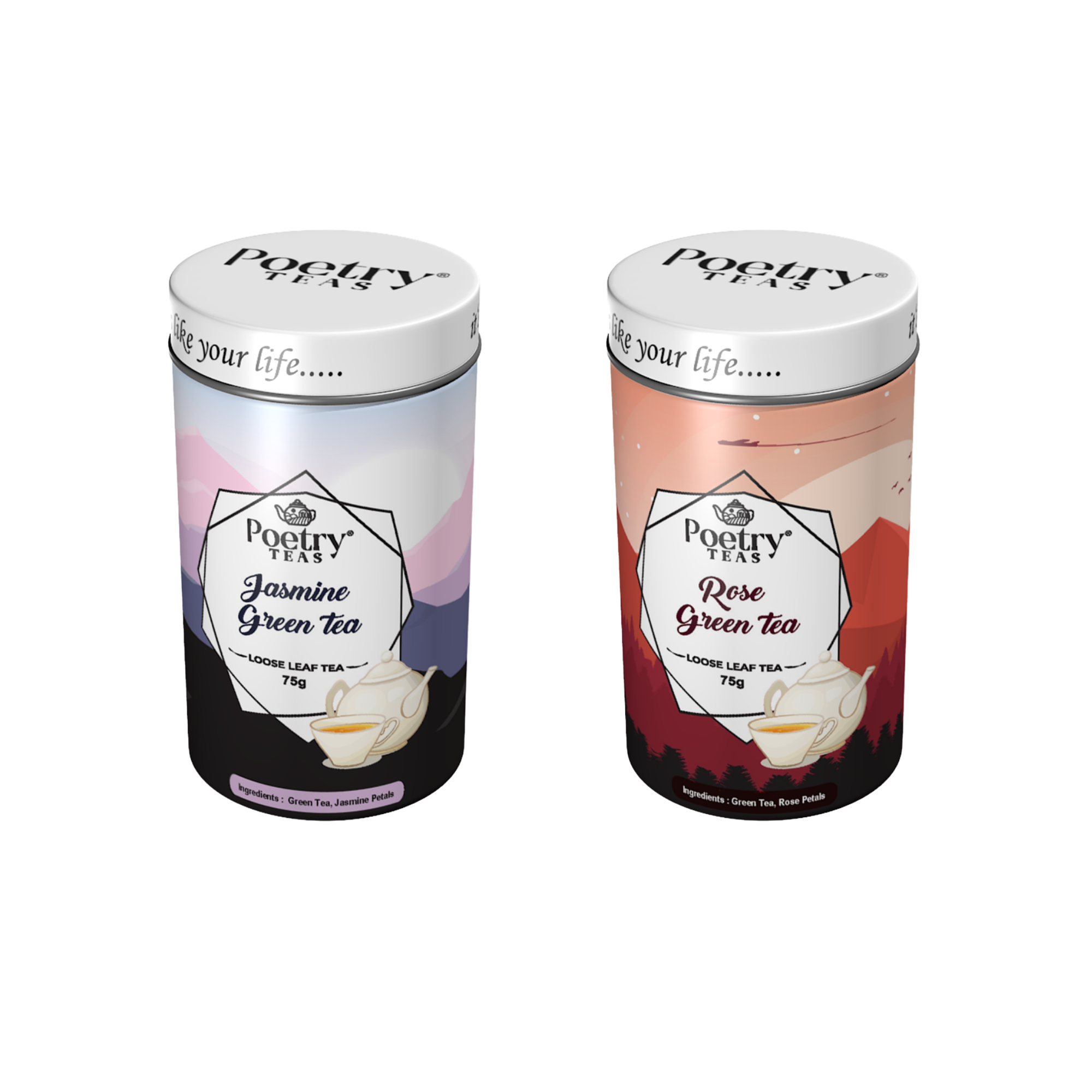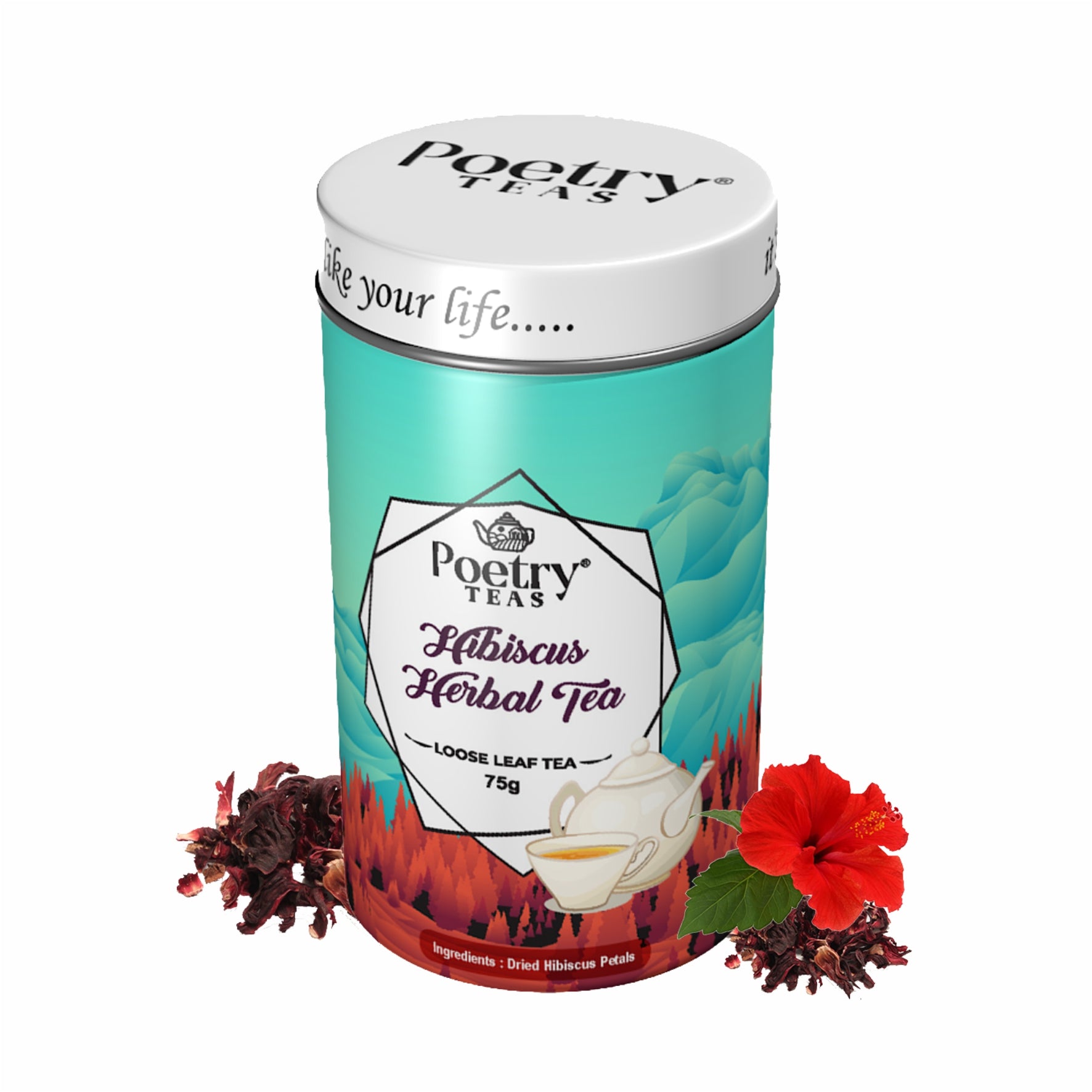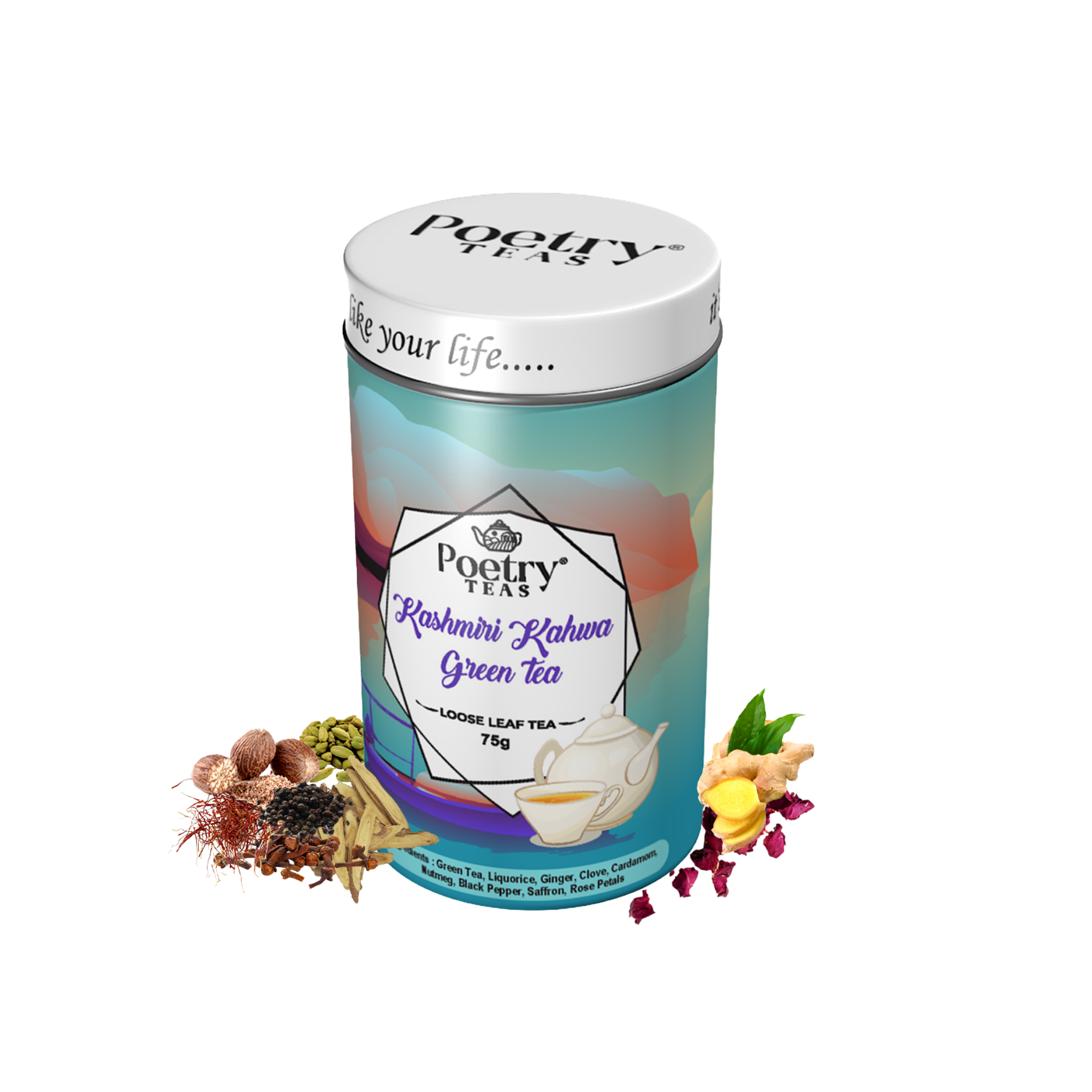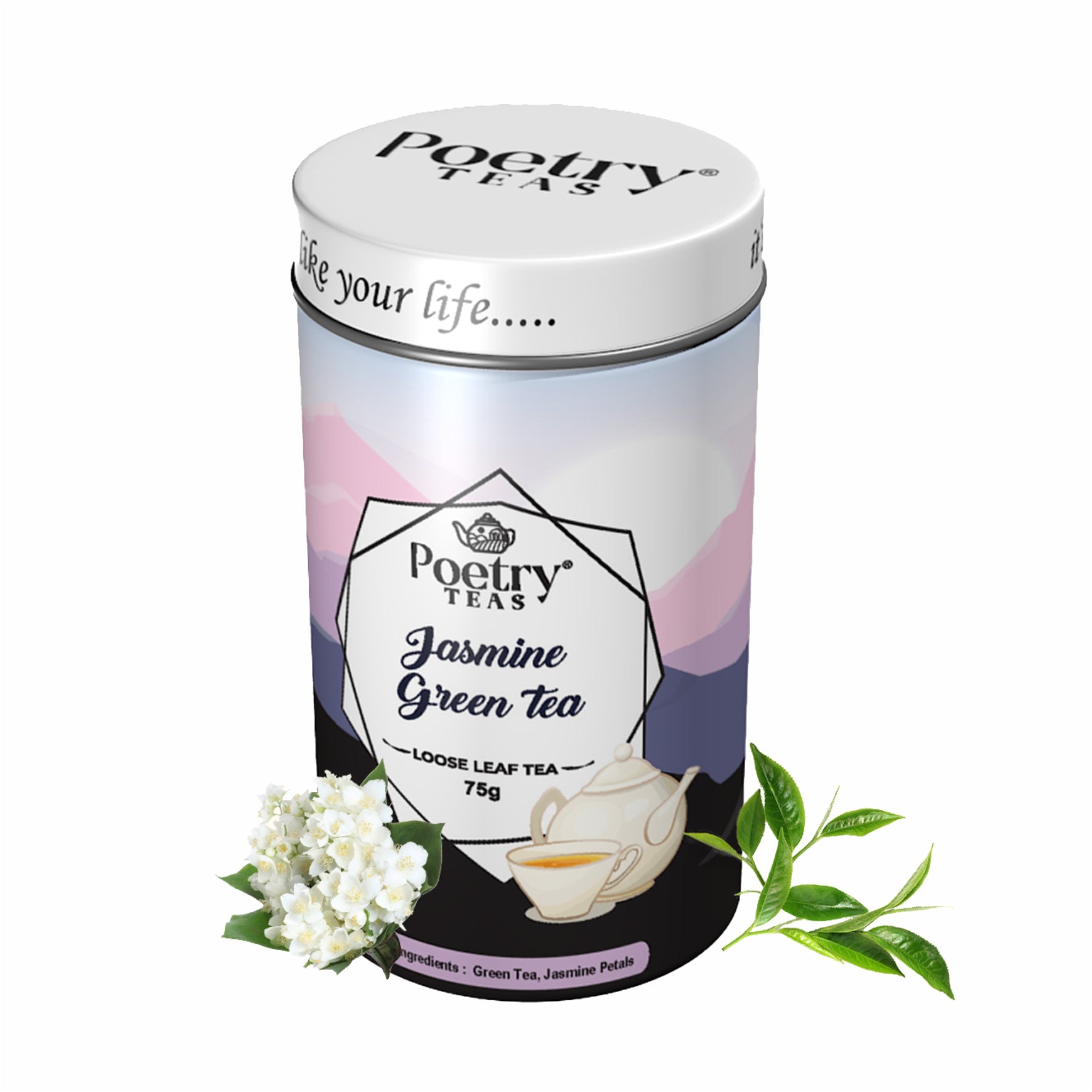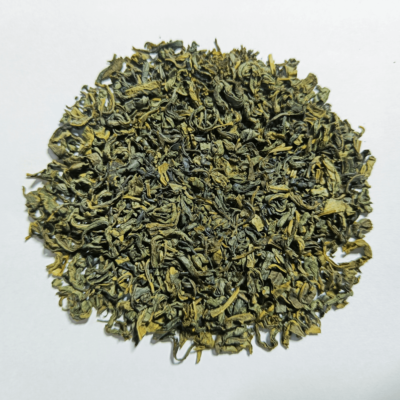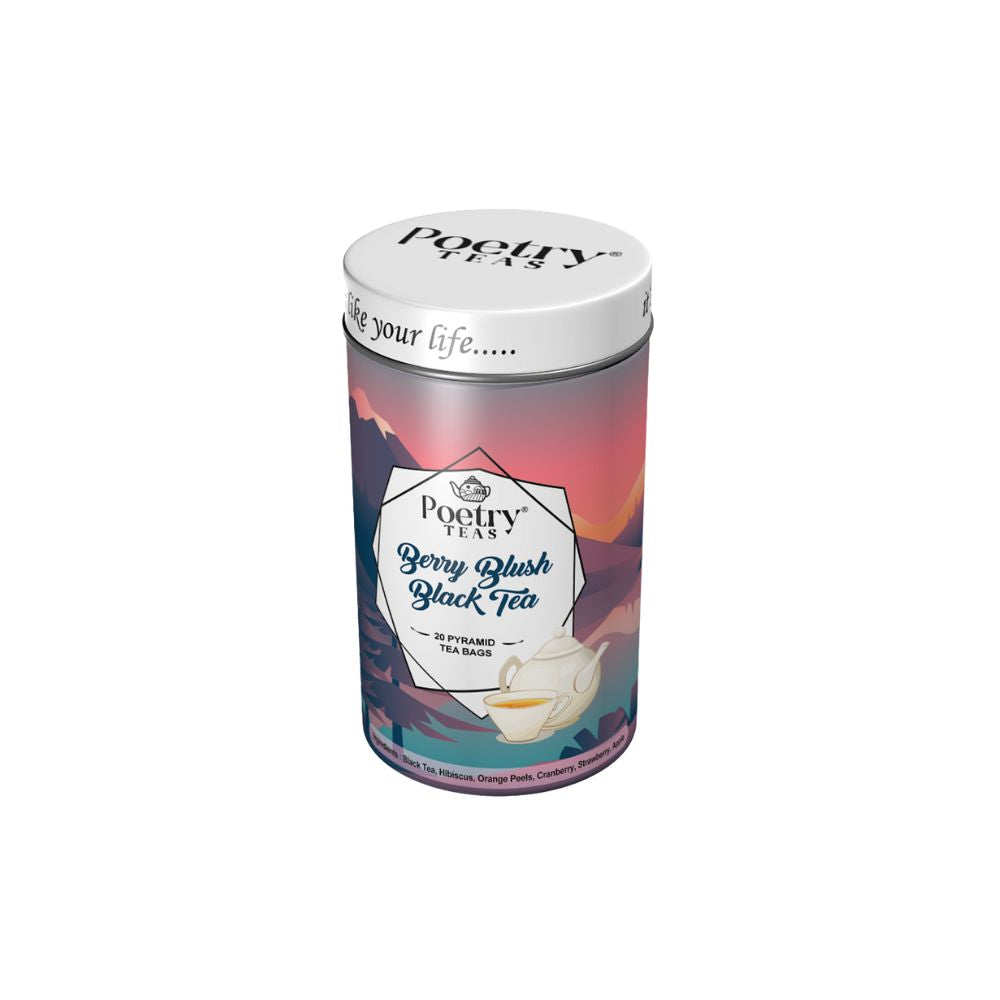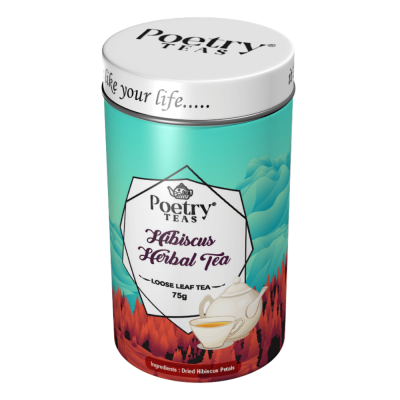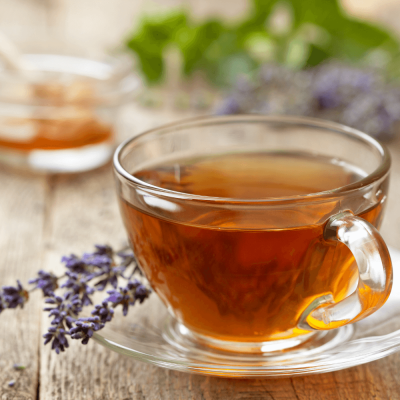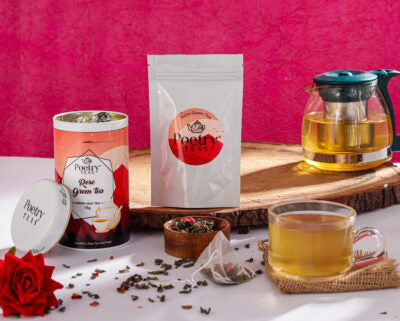Kashmiri Kehwa Tea and Lal Ded's Poetry
[caption id="attachment_1400" align="alignnone" width="240"] Kashmiri Kehwa. (Photo: Wiki Commons)[/caption]
Kashmiri Kehwa. (Photo: Wiki Commons)[/caption]
A warm pheran, a kangri, and good Kashmiri Kehwa — that's all one needs to survive the snow-laden Kashmiri winters. While to keep warm, one may not always have the chance to wear a pheran or carry a kangri burning with coal, one can always drink kehwa to feel warm in any part of India or the world.
The kehwa is a premium green tea, which, when brewed, becomes an amber coloured, aromatic tea with gentle notes. A big part of the kehwa's charm is the exotic whole spices it is infused with — cinnamon, cardamom, and saffron — all of which have subtle flavours that never overpower the tea.
Besides its sensory brilliance, the Kashmiri kehwa also has a number of health benefits:
- It detoxifies the body
- Is an excellent remedy for cold
- Improves heart health
- Enhances the skin
- Is a natural stress buster
We at Poetry Teas obviously love the kehwa. But besides the drink, we have another strong connection with Kashmir.
When you say Kashmir, we hear poetry!
Indeed, when a place has been christened 'Heaven on Earth,' how can it not be a muse to anyone connected with poetry? And Poetry Teas is no exception.
To tell the story of one of our favourite poets from Kashmir, let's take you back a bit (not much, only about 700 years!)
In the early 1300s, a girl child is born into a Kashmiri Brahmin family. She's married at the age of 12, as is the cultural norm at the time.
Post marriage, she is sent off to live with her in-laws in Pampore. Although she is given the name of Padmavati, she will forever be known as Lal Ded. But life isn't easy for Lalla. Because of her devotion to saints, she is treated badly by her husband. Her in-laws starve her. At 26, she renounces home and becomes a mystic. Her decision to live as a wandering mystic baffles society at that time, because even the male mystics of that time stay within the confines of family. Yet, here is Lal Ded, or Lalla, who is living the life of a mendicant... as a woman... in Kashmir... in the 14th century.
Her defiance doesn't stop here. To connect with people heart-to-heart, she abandons Sanskrit, the language of the Gods, to speak directly to the people in their native tongue, Kashmiri.
Lal Ded's mystic poems have enriched the soil of Kashmir for almost 650 years. Her spiritual influence continues to linger on in Kashmir despite the political and social upheavals that the land has endured over the years.
As you sit down on a chair to have Poetry Teas' Kashmiri Kehwa tea, do also soak in Lal Ded's profound poetry.
Feel unsure of your journey? You aren't alone
“From what direction did I come, and by what road?
In what direction am I going, how shall I find the road?
I hope they’ll send me a map before it’s too late
or it’s all over for me, my breath all gone to waste.”— Excerpt From I, Lalla, Lal Ded
“Master, my Master, listen to me!
Do you remember what the world was like?
Children, how will you pass your days and nights?
This is going to be one tough life.”— Excerpt From I, Lalla, Lal Ded
Embrace the Mystical
“Lord! I’ve never known who I really am, or You.
I threw my love away on this lousy carcass
and never figured it out: You’re me, I’m You.
All I ever did was doubt: Who am I? Who are You?”— Excerpt From I, Lalla, Lal Ded
All That We Really Have
“Poor me, all helpless, I had to make a noise:
‘I’ve got nothing! Won’t you buy some?’
I came back again and cried out loud:
‘I’ve got breath and soul! Two for the price of one!”— Excerpt From I, Lalla, Lal Ded


